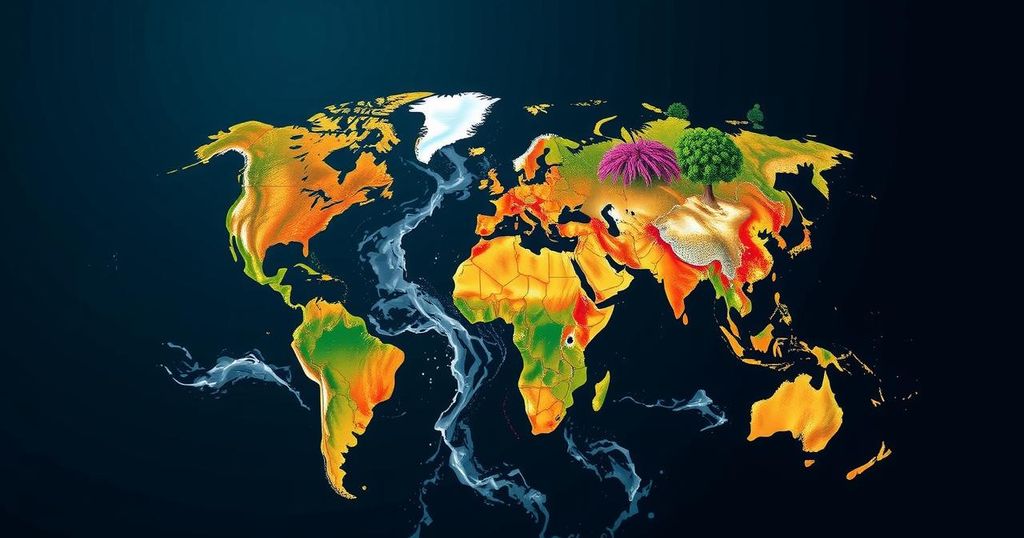Climate Change poses Unprecedented Threats to Public Health

A recent report highlights the growing threat of climate change to human health, with record increases in extreme weather, diseases, and food insecurity. Released ahead of crucial climate talks, it emphasizes the need for urgent action while noting some positive trends in pollution reduction and renewable energy usage.
A recent report indicates that climate change is increasingly endangering human health in unprecedented ways. This alarming observation, published by the Lancet Countdown on health and climate change, has raised serious concerns among experts, who emphasize that inaction has already cost lives. The report coincides with a period of extreme weather globally, projecting 2023 to be the hottest year recorded. Significant climate-related events such as heatwaves, hurricanes, droughts, and floods have culminated in severe health impacts. The report, developed by a board of 122 experts from entities including the World Health Organization, evaluated 15 indicators over the past eight years, revealing that ten have surged to worrying new heights. These indicators include the rise in extreme weather occurrences, an alarming increase in deaths among the elderly due to heat exposure, the spread of infectious diseases, and heightened food insecurity linked to agricultural disruptions from climate phenomena. Notably, deaths among individuals aged 65 and above attributable to heat have escalated by 167 percent since the 1990s. Concurrently, the geographical spread of mosquitoes has expanded, leading to increased incidences of diseases such as dengue; with over five million reported cases last year alone. Forest degradation, which saw around five percent of global tree cover vanish between 2016 and 2022, has further compromised the planet’s ability to absorb carbon emissions. The report also scrutinizes the role of oil and gas corporations and certain governments in exacerbating climate change. Despite ongoing warnings from scientists and organizations, greenhouse gas emissions continue to rise, with large fossil fuel companies recording unprecedented profits and increasing production in the wake of rising global prices stemming from the conflict in Ukraine. In 2022, fossil fuel subsidies reached a staggering $1.4 trillion, which dwarfed any financial commitments to foster a sustainable future. Encouragingly, the report does highlight areas of progress. There was a nearly seven percent decline in deaths linked to fossil fuel-related air pollution from 2016 to 2021, largely due to improved standards in coal pollution. The proportion of clean energy utilized for electricity generation also nearly doubled during this time. The Lancet Countdown’s executive director, Marina Romanello, emphasized the importance of immediate action, stating, “If action is not taken today, the future will be very dangerous. There is really no more time to waste… the wasted time has been paid in lives.” To mitigate these dire circumstances, she advises adopting a climate-conscious lifestyle and supporting political candidates committed to addressing climate change.
The report by the Lancet Countdown is significant as it reveals the grave health consequences associated with climate change. It serves to highlight the extensive research conducted by a panel of experts analyzing various health indicators influenced by climate events. This timely release comes amid unprecedented weather patterns predicted to manifest in 2023 and leads into crucial international climate negotiations. Understanding these verified impacts of climate change is vital for engaging with ongoing discussions about protective strategies for public health, particularly as the world prepares for future challenges.
In summary, the Lancet Countdown’s report poignantly illustrates the alarming connection between climate change and public health, underlining the urgent need for decisive action to avert further loss of life and health. With record-high incidents of health threats emerging from climate-related changes, the call for immediate response and structural shifts towards sustainable practices remains clear. Policymakers, industries, and individuals alike must prioritize health-focused climate actions to ensure a safer future for all.
Original Source: www.barrons.com







